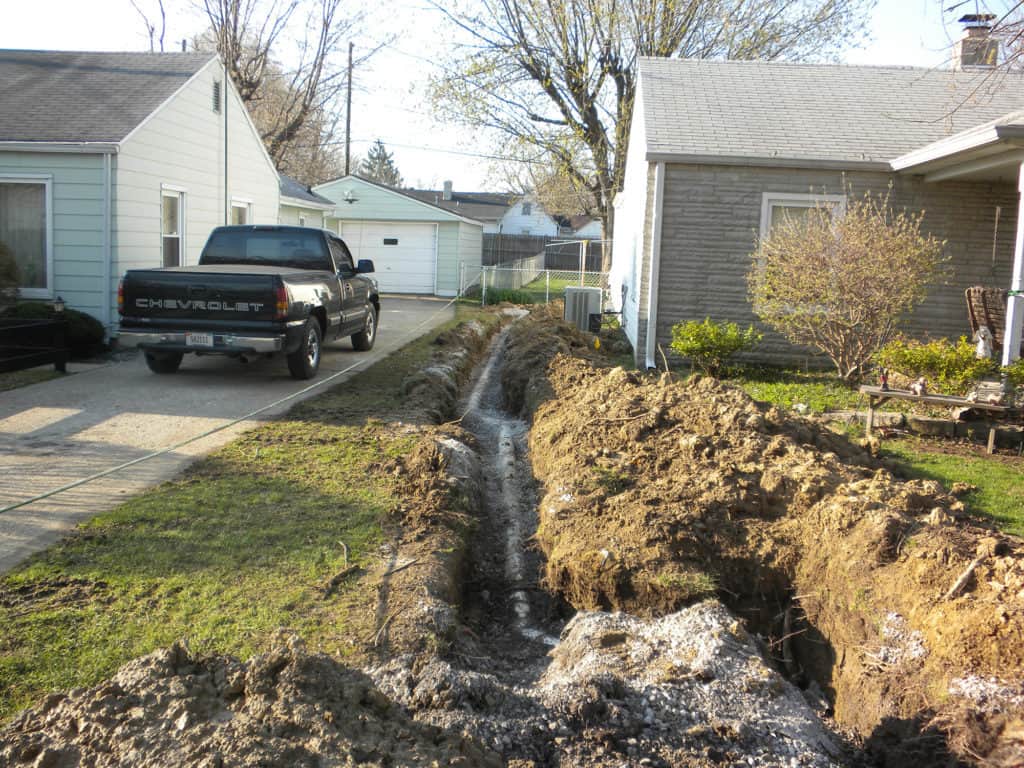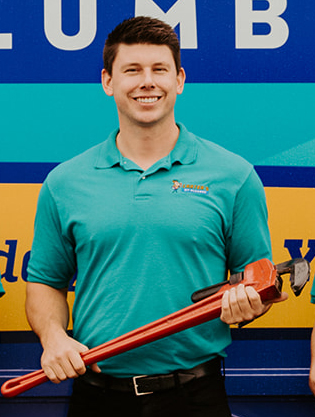Your sewer line plays an unglamorous yet utterly essential role, transporting waste from your home to the municipal sewage system. And while sewer lines are made to be resilient, often lasting decades at a time, they are not immune to damage and decay. Sooner or later, most homeowners will likely contend with a damaged sewer line, and the cost for repairing it can be pretty steep.
The good news is, there are some basic maintenance steps you can follow to minimize sewer line damage, and to keep your household plumbing systems working the way they are meant to for a good long while. In this post, we’ll share guidelines from some of the top plumbers in Indianapolis.

What Causes Sewer Line Damage?
To begin with, it may be helpful to know some of the most common causes of sewer line damage.
- Age. As with any other pipes or plumbing systems, sewer lines can deteriorate as a result of age. This is especially true of pipes made from clay or cast iron, materials that are especially vulnerable to the ravages of time.
- Trees. Tree roots seeking moisture and nutrients can infiltrate your sewer lines through small cracks or joints, causing blockages and damage. Having tree roots near your sewer line is one of the most significant risks.
- Clogs. The accumulation of debris, grease, or foreign objects can lead to clogs in sewer lines, causing pressure to build up. This can lead to a host of issues, ranging from slow drains to ruptured sewer lines.
Other factors that can cause damage to your sewer lines include the shifting and settling of the ground, poor installation, and heavy traffic or construction on your property.
How to Prevent Sewer Line Damage
Given these factors, there are a number of proactive steps that Indianapolis homeowners can take to prevent sewer line damage.
Be Careful What You Flush
First and foremost, be mindful of what you flush down your toilets. Remember that the toilet is really just for human waste and for toilet paper. Using it to get rid of feminine hygiene products, diapers, or paper towels will significantly increase your chances of a clogged or ruptured sewer line.
Properly Dispose of Grease
Along the same lines, be sure not to put grease down your sink. Avoid pouring any kind of oil or fats down drains. Instead, let them cool and solidify, then dump them into the trash can. Remember, grease can solidify in sewer lines, leading to blockages and prompting the need for sewer line repair.
Avoid Using Corrosive Chemicals
Still another important tip for Indianapolis homeowners is to be careful about chemical drain cleaners. These chemicals can corrode and damage sewer pipes. Instead of harsh chemicals, consider alternative methods like enzyme-based cleaners or drain snakes. (And for really bad clogs, call professional plumbers.)
Don’t Plant Trees or Shrubs Near the Sewer Line
When landscaping, avoid planting trees or large shrubs directly above or near sewer lines. This may help you to minimize the risk of root intrusion. If you’re unclear of where the sewer lines are, exactly, a professional plumber can provide an inspection.
Conserve Water
Something else to keep in mind is that wastewater puts continuous strain on your pipes and plumbing, especially the sewer line. Simply being more intentional in water conservation can help you to extend the life of this line.
Schedule Routine Plumbing Maintenance
Finally, consider scheduling annual inspections from a local plumbing company. Your plumber will be attentive to signs that your pipes and sewer lines are breaking down or developing clogs, recommending preventative steps that can help you avoid more expensive repairs down the road.
Be Proactive in Preserving Your Sewer Lines
The bottom line: Your sewer lines play a significant role in promoting comfort, convenience, and quality of life. While they are not made to last forever, there are a number of smart steps homeowners can take to extend the lifespan of their sewer lines for a good long while.
That’s something we’re happy to help with. To find out more about sewer line inspections or maintenance in Indianapolis, reach out to the team at Carter’s My Plumber today.



